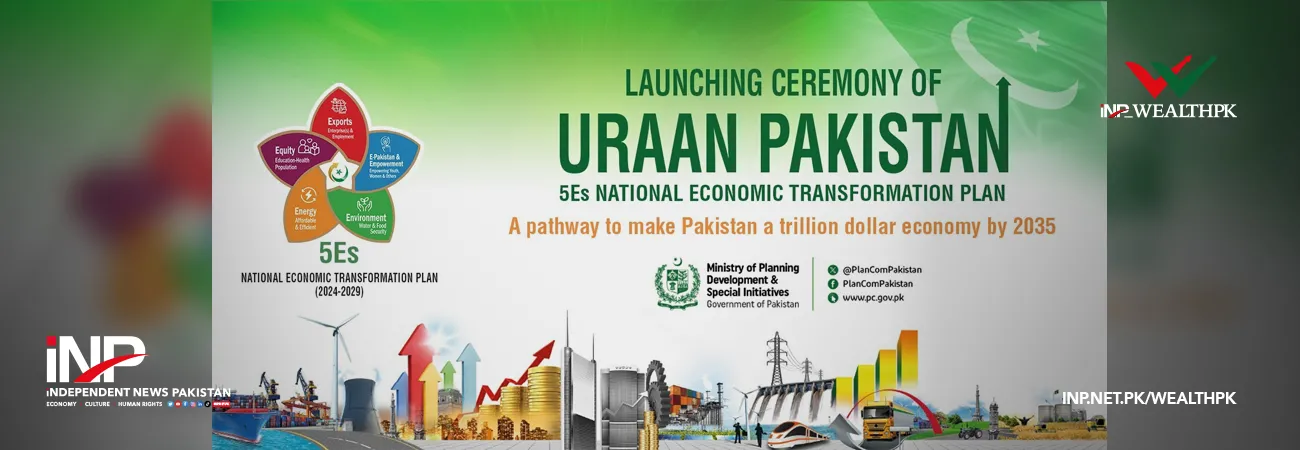INP-WealthPk
Ayesha Saba
The launch of ‘Uraan Pakistan’ programme by the Ministry of Planning and Development marks a pivotal step toward comprehensive economic transformation. Aimed at diversifying the economy, fostering innovation and building resilience, its success hinges on policy continuity, strong governance, and accountability to sustain momentum and achieve strategic goals.

Speaking to WealthPK, Shahid Zaman, a research officer at the Macro-Economic Wing of the Ministry of Planning, Development and Special Initiatives (MO/PDSI), underscored the significance of ‘Uraan Pakistan’ in shaping the future of the country’s economic landscape. He said the establishment of this initiative represents not just a policy shift but a strategic transformation aimed at buffering the economy from vulnerabilities and enhancing its adaptability in an increasingly volatile global environment.
“Diversification is the cornerstone of economic stability,” Zaman said. “In today’s global markets, the future of competitiveness lies in innovation. By integrating cutting-edge technologies into Pakistan’s economic fabric, we can significantly boost productivity, leading to enhanced efficiency and global competitiveness.” He emphasised that countries that prioritise innovation are better positioned to thrive in the international arena.
However, Zaman also sounded a note of caution, highlighting that the success of this initiative hinges on the principles of effective governance and transparency. “To achieve its intended goals, transparency in operations and the establishment of clear performance metrics are essential,” he stressed. “Regular monitoring and evaluation of initiatives will not only ensure that objectives are being met but will also bolster stakeholder confidence, a crucial component for sustaining long-term reforms,” Zaman underscored.
He further elaborated that ‘Uraan Pakistan’ must adopt a proactive approach to governance, with a focus on measurable outcomes and continuous improvement. “Transparency and accountability are not optional; they are the backbone of any successful reform initiative. Without these, even the most well-intentioned policies can falter,” he added. To fully harness the potential of the initiative, Zaman said that policy continuity and full implementation are indispensable.
He emphasised that sustained commitment from all stakeholders, including policymakers, private sector players, and civil society, is crucial for the long-term success of this initiative. “Achieving the ambitious goal of transforming Pakistan into a one trillion-dollar economy by 2035 is possible, but it requires unwavering focus, consistent policy application, and an inclusive approach that brings all sectors of society on board,” he remarked.




